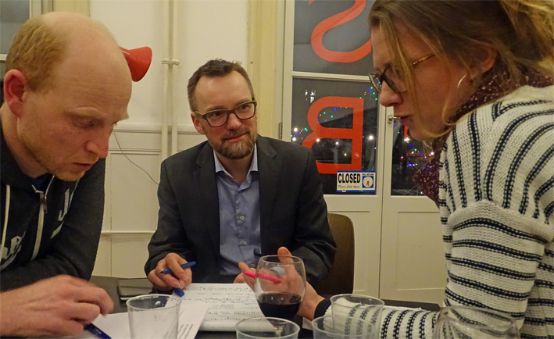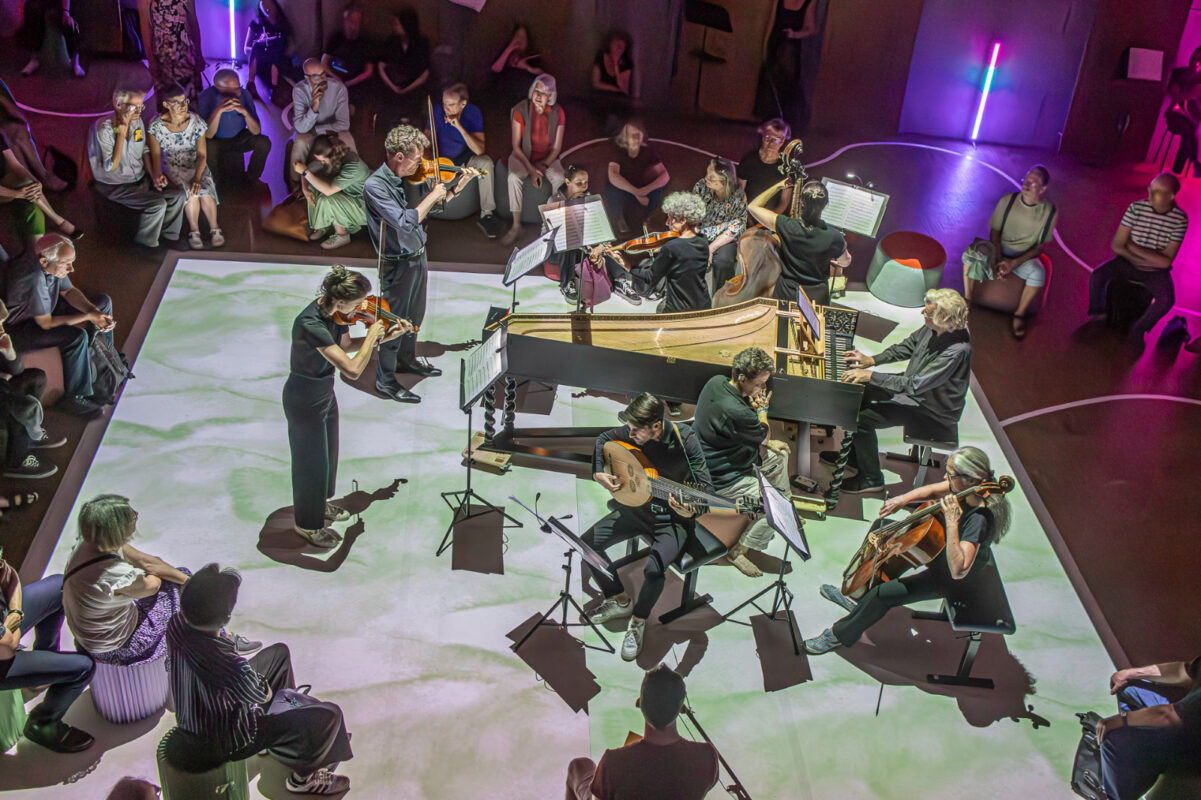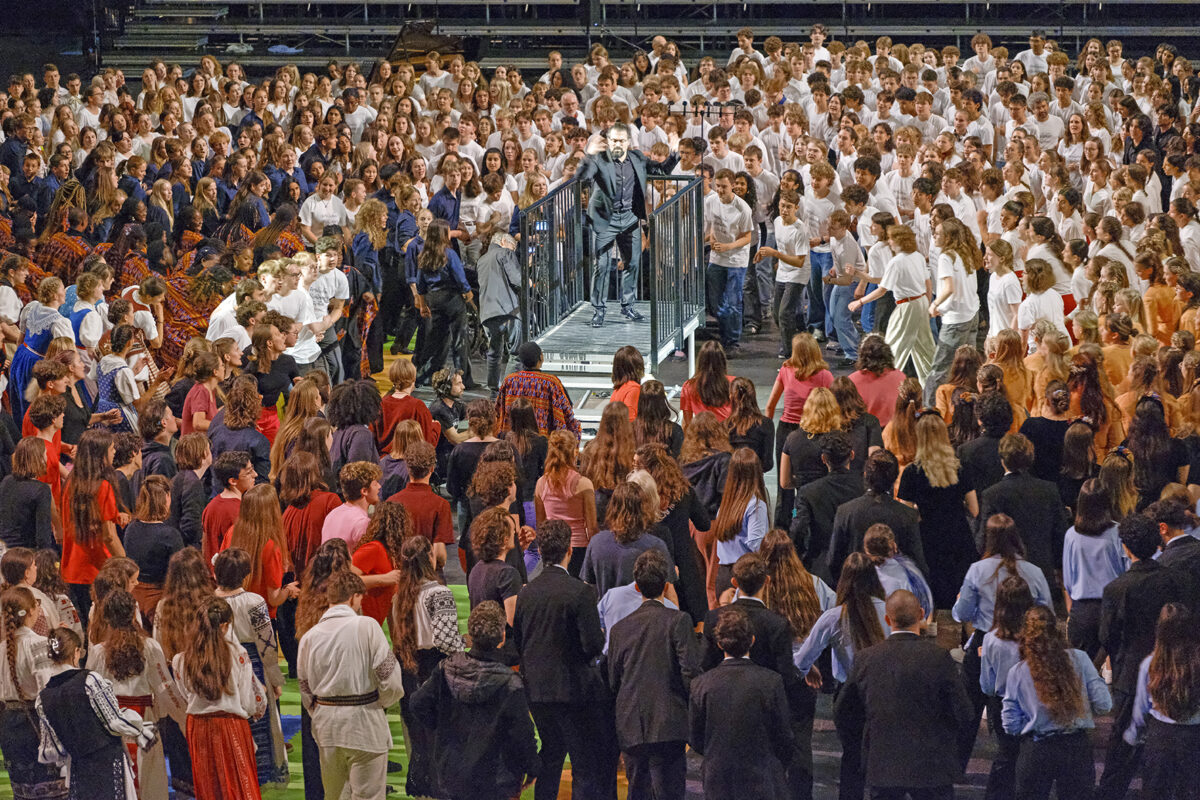Earn money on the Internet
At the Sessions meeting on March 8, the revision of the Copyright Act was scrutinized and Internet piracy and developments in streaming were discussed.

At the end of the latest Sessions-Stubete at the Progr in Bern, Indie Suisse President Andreas Ryser, Anja Illmaier from Intakt Records and Matthias Stürmer, Managing Director of the Parliamentary Group for Digital Sustainability, calculate what income an artist can expect on Spotify. What is rather surprising in view of the notorious complaints about the collapse of the music business: Ryser interprets the result with confidence. Ultimately, a title streamed on the popular platform generates revenues that are comparable to those of a traditional CD. However, there is a problem: if an artist sells a CD, they receive all of the revenue immediately; if, as on Spotify, the actual streams are paid for, the revenue is distributed over the entire period of use. The consequence, according to Ryser, is that there will have to be banks or labels that advance the money to the musician. In fact, it is becoming apparent that the industry is moving towards such a model again.
With Spotify and streaming as the most important future source of income for music creators, the Sessions-Stubete, an event organized by Musikförderung Bern and Sonart - Musikschaffende Schweiz, has arrived in the foreseeable future. The starting point, however, was the phenomenon of illegal downloads and the question of whether they should play a role in the current revision of the national Copyright Act (URG). Nobody at the Progr had a single good word to say about the draft of the revised law. It does not include blocks for anonymous piracy sites, civil law tools against uploaders or remuneration for social media use. But even the technical quality of the draft was heavily criticized by the experts present.
Controversial consequences of illegal downloads
Whether illegal downloads will still play a role at all in the future in view of the change in user behavior was also up for debate, however. At the start of the event, Anja Illmaier illustrated the damage that those affected still suspect is caused by this. The Intakt label has been making its entire catalog available on the Bandcamp platform for two years. One musician pointed out that his music was also being offered illegally by third parties. According to Illmaier, however, tracing the provider proved to be difficult. The research ultimately pointed to a server based in Togo. The provider did not respond to the request to remove the illegal offers - even with the support of Suisa. Such countermeasures are very costly, explained the label representative, and are usually ineffective anyway. Moreover, it is completely impossible for record companies to proactively search the net for illegal offers of their products. Intakt estimates that such piracy results in an annual loss of income of around CHF 10,000 for the musician concerned. However, such a calculation was received skeptically by the Progr.
The moderator of the Sessions-Stubete was Christoph Trummer, President of the Swiss Pop-Rock Association of Musicians until the end of 2017, which was forced to merge with the Swiss Music Syndicate SMS (jazz and improvisation) and the Swiss Association of Musicians STV (new music) under pressure from the Federal Office of Culture. As a delegate of the cultural umbrella organization Suisseculture, Trummer worked on Federal Councillor Sommaruga's copyright working group (AGUR12). The working group was set up in 2012 and completed its work in April 2017. One of its topics was possible strategies to combat copyright abuse on the internet. In the end, there is not much left of this: on the one hand, rather non-binding incentives for hosters to prevent abuses of their platforms; these were deemed to be extremely amateurish from a legal perspective at the Sessions meeting. On the other hand, possibilities are to be created to identify uploaders. The Federal Council adopted the draft bill and the dispatch on November 22, 2017. It does not only deal with aspects that are of direct interest to the music industry. Other planned changes affect researchers and libraries, for example. The latter are to be able to use their collections for certain purposes without explicit permission from the rights holders. Performances are now protected by copyright for 70 years instead of the previous 50 years. The extension of the protection period is intended to give producers more time to amortize their investments.








